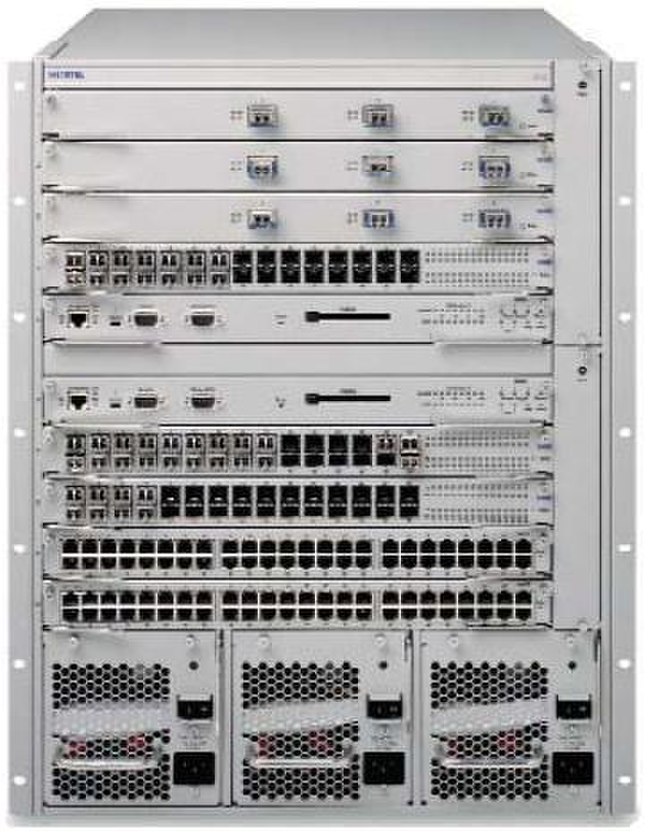-
Modem
A modem – a portmanteau of “modulator-demodulator” – is a hardware device that converts data into a format suitable for a transmission medium so that it can be transmitted from one computer to another (historically along telephone wires). A modem modulates one or more carrier wave signals to encode digital information for transmission and demodulates signals to decode the transmitted information. The goal is to produce a signal that can be transmitted easily and decoded reliably to reproduce the original digital data. Modems can be used with almost any means of transmitting analog signals from light-emitting diodes to radio. A common type of modem is one that turns the digital data of a computer into modulated electrical signal for transmission over telephone lines and demodulated by another modem at the receiver side to recover the digital data.
Modems are generally classified by the maximum amount of data they can send in a given unit of time, usually expressed in bits per second (symbol bit/s, sometimes abbreviated “bps”) or rarely in bytes per second (symbol B/s). Modems can also be classified by their symbol rate, measured in baud. The baud unit denotes symbols per second, or the number of times per second the modem sends a new signal. For example, the ITU V.21 standard used audio frequency-shift keying with two possible frequencies, corresponding to two distinct symbols (or one bit per symbol), to carry 300 bits per second using 300 baud. By contrast, the original ITU V.22 standard, which could transmit and receive four distinct symbols (two bits per symbol), transmitted 1,200 bits by sending 600 symbols per second (600 baud) using phase-shift keying.
-
Router (noun)
Someone who routes or directs items from one location to another.
“The router directed the movement of the company’s trucks.”
-
Router (noun)
Any device that directs packets of information using the equivalent of Open Systems Interconnection layer 3 (network layer) information. Most commonly used in reference to Internet Protocol routers.
-
Router (noun)
A device that connects local area networks to form a larger internet by, at minimum, selectively passing those datagrams having a destination IP address to the network which is able to deliver them to their destination; a network gateway.
“The router was configured to forward packets outside of a certain range of IP addresses to its internet uplink port.”
-
Router (noun)
In integrated circuit or printed circuit board design, an algorithm for adding all wires needed to properly connect all of the placed components while obeying all design rules.
-
Router (noun)
A power tool used in carpentry for cutting grooves.
“He made an attractive edge on the table with a router.”
-
Router (noun)
A plane made like a spokeshave, for working the inside edges of circular sashes.
-
Router (noun)
A plane with a hooked tool protruding far below the sole, for smoothing the bottom of a cavity.
-
Router (verb)
to hollow out or cut using a router power tool.
-
Modem (noun)
A device that encodes digital computer signals into analog/analogue telephone signals and vice versa and allows computers to communicate over a phone line.
-
Modem (verb)
To transmit by modem.
-
Router (noun)
a power tool with a shaped cutter, used in carpentry for making grooves for joints, decorative mouldings, etc.
-
Router (noun)
a device which forwards data packets to the appropriate parts of a computer network.

